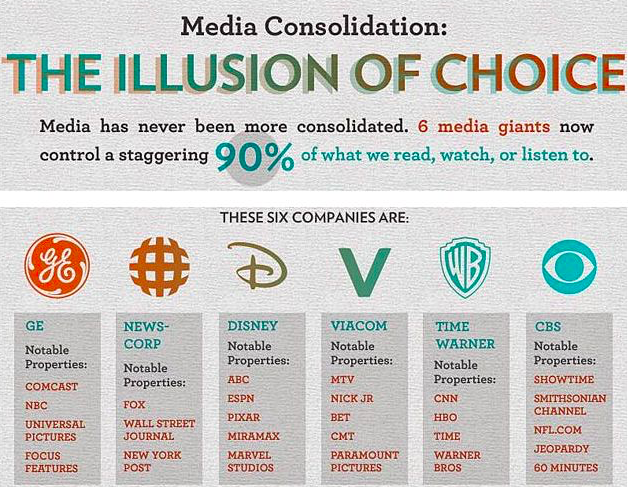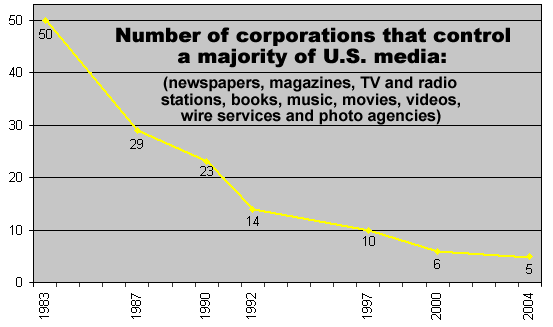Welcome to DU!
The truly grassroots left-of-center political community where regular people, not algorithms, drive the discussions and set the standards.
Join the community:
Create a free account
Support DU (and get rid of ads!):
Become a Star Member
Latest Breaking News
Editorials & Other Articles
General Discussion
The DU Lounge
All Forums
Issue Forums
Culture Forums
Alliance Forums
Region Forums
Support Forums
Help & Search
Missouri
In reply to the discussion: Radio stations in conservative strongholds [View all]UpInArms
(54,097 posts)25. No one seems to have noticed


Broadcasting Fairness Doctrine Promised Balanced Coverage
In 1987 a bill to place the Fairness Doctrine into federal law passed the House by 3 to 1, and the Senate by nearly 2 to 1, but it was vetoed by President Ronald Reagan. Among those voting for the bill were Rep. Newt Gingrich (R-Ga.) and Sen. Jesse Helms (R-N.C.). In 1989 the Fairness Doctrine easily passed the House again, but didn't proceed further as President George Bush threatened to veto it. In 1991, hearings were again held on the doctrine, but President Bush's ongoing veto threat stymied passage.
Then the Corporation for Public Broadcasting was assigned the responsibility to: "facilitate the full development of public telecommunications in which programs of high quality, diversity, creativity, excellence, and innovation, which are obtained from diverse sources, will be made available to public telecommunications entities, with strict adherence to objectivity and balance in all programs or series of programs of a controversial nature." The "Fairness in Broadcasting Act of 1993" was sponsored in the Senate (S. 333) by Ernest Hollings (D-S.C.), and in the House (H.R. 1985) by Bill Hefner (D-N.C.).
Opponents of the Fairness Doctrine have included New York Governor Mario Cuomo, and broadcaster Rush Limbaugh. Cuomo argued that, "Precisely because radio and TV have become our principal sources of news and information, we should accord broadcasters the utmost freedom in order to insure a truly free press." Limbaugh argued that there should be no government fairness standards on broadcasters, since there are none on the print press.
Then the Corporation for Public Broadcasting was assigned the responsibility to: "facilitate the full development of public telecommunications in which programs of high quality, diversity, creativity, excellence, and innovation, which are obtained from diverse sources, will be made available to public telecommunications entities, with strict adherence to objectivity and balance in all programs or series of programs of a controversial nature." The "Fairness in Broadcasting Act of 1993" was sponsored in the Senate (S. 333) by Ernest Hollings (D-S.C.), and in the House (H.R. 1985) by Bill Hefner (D-N.C.).
Opponents of the Fairness Doctrine have included New York Governor Mario Cuomo, and broadcaster Rush Limbaugh. Cuomo argued that, "Precisely because radio and TV have become our principal sources of news and information, we should accord broadcasters the utmost freedom in order to insure a truly free press." Limbaugh argued that there should be no government fairness standards on broadcasters, since there are none on the print press.
Edit history
Please sign in to view edit histories.
Recommendations
0 members have recommended this reply (displayed in chronological order):
36 replies
 = new reply since forum marked as read
Highlight:
NoneDon't highlight anything
5 newestHighlight 5 most recent replies
RecommendedHighlight replies with 5 or more recommendations
= new reply since forum marked as read
Highlight:
NoneDon't highlight anything
5 newestHighlight 5 most recent replies
RecommendedHighlight replies with 5 or more recommendations
I saw a statistic that conservative talk radio makes up 98 percent of all all talk radio
bearsfootball516
Dec 2018
#1
THIS TELLS US EXACTLY what to do to have the quickest impact on conservative voters.
bobGandolf
Dec 2018
#8
1. Rush Limbaugh hails from Missouri. No wonder why he's so popular on the radio there.
no_hypocrisy
Dec 2018
#10